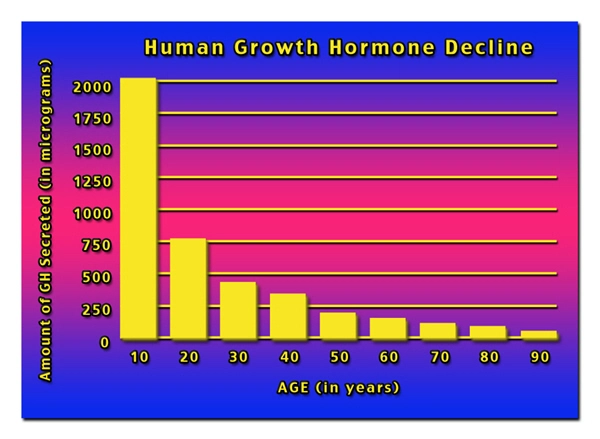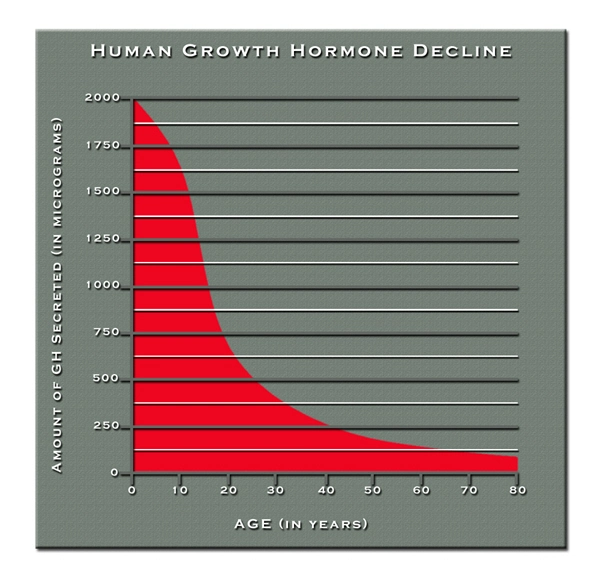Introduction
The field of endocrinology, which focuses on the endocrine system and its secretions, plays a pivotal role in male reproductive health. Hormones such as testosterone, luteinizing hormone (LH), and follicle-stimulating hormone (FSH) are critical for male fertility and overall sexual function. In the United States, where lifestyle factors and environmental influences can significantly affect hormonal balance, understanding the relationship between endocrinology and male reproductive health is essential. This article delves into the intricate connections between hormonal regulation and fertility rates among American males, as well as the potential of hormonal treatments to address reproductive challenges.
The Role of Hormones in Male Fertility
Hormones are the body's chemical messengers, and their balance is crucial for reproductive health. Testosterone, produced primarily in the testes, is essential for sperm production and libido. LH and FSH, secreted by the pituitary gland, stimulate the testes to produce testosterone and sperm, respectively. Any disruption in these hormonal pathways can lead to decreased fertility. In the U.S., factors such as obesity, stress, and exposure to endocrine-disrupting chemicals can alter hormone levels, contributing to declining fertility rates.
Current Fertility Trends Among American Males
Recent studies indicate a concerning trend of declining sperm counts and fertility rates among American men. Research published in the journal *Human Reproduction Update* suggests that sperm counts have dropped by more than 50% over the past four decades. This decline is attributed to a combination of genetic, environmental, and lifestyle factors that affect hormonal balance. As a result, many American males are turning to medical interventions to address fertility issues.
Hormonal Treatments and Their Efficacy
Hormonal treatments have emerged as a viable option for men struggling with infertility. Testosterone replacement therapy (TRT) can be beneficial for those with hypogonadism, a condition characterized by low testosterone levels. However, TRT must be carefully managed, as it can suppress natural testosterone production and sperm count. Alternatively, treatments such as clomiphene citrate, which stimulates the body's own production of testosterone and sperm, have shown promise in improving fertility without the risks associated with TRT.
Challenges and Considerations in Hormonal Therapy
While hormonal treatments offer hope for many, they are not without challenges. The effectiveness of these therapies can vary widely among individuals, and potential side effects, such as mood swings, acne, and increased risk of cardiovascular issues, must be carefully weighed. Additionally, the cost of long-term treatment can be prohibitive for some patients. It is crucial for healthcare providers to tailor treatment plans to the specific needs and circumstances of each patient, ensuring a balanced approach to improving fertility.
Lifestyle Interventions and Hormonal Balance
In addition to medical treatments, lifestyle modifications can play a significant role in restoring hormonal balance and enhancing fertility. Regular exercise, a balanced diet rich in nutrients essential for hormone production, and stress management techniques can all contribute to improved reproductive health. For American males, adopting a holistic approach that combines lifestyle changes with medical interventions may offer the best chance of overcoming fertility challenges.
Conclusion
The impact of endocrinology on male reproductive health is profound, with hormonal imbalances playing a central role in fertility issues among American males. As fertility rates continue to decline, understanding and addressing these hormonal disruptions through targeted treatments and lifestyle interventions is crucial. By fostering a comprehensive approach to reproductive health, we can help American men navigate the complexities of fertility and achieve their family-building goals.
This article underscores the importance of a nuanced understanding of endocrinology in the context of male reproductive health, highlighting the potential of hormonal treatments and lifestyle modifications to improve fertility outcomes. As research continues to evolve, so too will the strategies available to support American males in their journey toward reproductive wellness.

- Endocrinology and Sleep: Impact on American Men's Health and Disorders [Last Updated On: March 7th, 2025] [Originally Added On: March 7th, 2025]
- PCOS Challenges and Management in Transgender American Men [Last Updated On: March 17th, 2025] [Originally Added On: March 17th, 2025]
- Dietary Strategies for Optimal Endocrine Health in American Males [Last Updated On: March 18th, 2025] [Originally Added On: March 18th, 2025]
- Vitamin D's Crucial Role in Endocrine Health for American Males [Last Updated On: March 18th, 2025] [Originally Added On: March 18th, 2025]
- Hormonal Shifts in Aging American Men: Endocrinology Insights and Management Strategies [Last Updated On: March 19th, 2025] [Originally Added On: March 19th, 2025]
- Endocrine Health and Cancer Risk in American Men: Hormones, Disruptors, and Prevention Strategies [Last Updated On: March 19th, 2025] [Originally Added On: March 19th, 2025]
- Endocrinology's Impact on Male Sexual Health: Hormones, Disorders, and Holistic Treatment [Last Updated On: March 20th, 2025] [Originally Added On: March 20th, 2025]
- Autoimmune Endocrine Disorders in American Males: Symptoms, Diagnosis, and Treatment Strategies [Last Updated On: March 20th, 2025] [Originally Added On: March 20th, 2025]
- Managing Endocrine Disorders and Type 2 Diabetes in American Men: Strategies and Insights [Last Updated On: March 21st, 2025] [Originally Added On: March 21st, 2025]
- Hormonal Optimization for American Male Athletes: Enhancing Performance Safely [Last Updated On: March 21st, 2025] [Originally Added On: March 21st, 2025]
- Male Infertility and Endocrinology: Hormonal Insights and American Men's Health Strategies [Last Updated On: March 21st, 2025] [Originally Added On: March 21st, 2025]
- Lifestyle Choices Impacting Endocrine Health in American Men: Diet, Exercise, and More [Last Updated On: March 21st, 2025] [Originally Added On: March 21st, 2025]
- Endocrinology's Role in Weight Management for American Males: Hormonal Strategies [Last Updated On: March 21st, 2025] [Originally Added On: March 21st, 2025]
- Chronic Fatigue in Men: Endocrinology's Role and Treatment Strategies [Last Updated On: March 21st, 2025] [Originally Added On: March 21st, 2025]
- Endocrine Disruptors: Impact on American Males' Health and Mitigation Strategies [Last Updated On: March 22nd, 2025] [Originally Added On: March 22nd, 2025]
- Endocrine Health and Prostate Cancer: Insights for American Men [Last Updated On: March 23rd, 2025] [Originally Added On: March 23rd, 2025]
- Hormonal Influences on Men's Skin Health: Testosterone, Estrogen, and Cortisol Effects [Last Updated On: March 23rd, 2025] [Originally Added On: March 23rd, 2025]
- Endocrine Disorders and Autoimmune Diseases in American Men: Challenges and Management [Last Updated On: March 23rd, 2025] [Originally Added On: March 23rd, 2025]
- Managing Endocrine Disorders in Men with Heart Disease: A Comprehensive Approach [Last Updated On: March 23rd, 2025] [Originally Added On: March 23rd, 2025]
- Endocrine Health and Liver Function: Vital for American Males' Well-being [Last Updated On: March 23rd, 2025] [Originally Added On: March 23rd, 2025]
- Endocrinology and Kidney Health: Critical Insights for American Men's Well-being [Last Updated On: March 24th, 2025] [Originally Added On: March 24th, 2025]
- Endocrinology's Impact on Joint Health in American Men: Hormones and Mobility [Last Updated On: March 24th, 2025] [Originally Added On: March 24th, 2025]
- Gout in American Males: Endocrine Influences and Multidisciplinary Management Strategies [Last Updated On: March 24th, 2025] [Originally Added On: March 24th, 2025]
- Endocrine Health and Vision: Impacts on American Males [Last Updated On: March 24th, 2025] [Originally Added On: March 24th, 2025]
- Endocrine Health and Mental Well-being in American Males: A Comprehensive Overview [Last Updated On: March 24th, 2025] [Originally Added On: March 24th, 2025]
- Endocrine Health Impacts Respiratory Function in American Males: Insights and Management [Last Updated On: March 24th, 2025] [Originally Added On: March 24th, 2025]
- Endocrine Health's Impact on Hearing in American Males: Prevention and Management [Last Updated On: March 24th, 2025] [Originally Added On: March 24th, 2025]
- Alcohol's Impact on Endocrine Function and Health in American Males [Last Updated On: March 24th, 2025] [Originally Added On: March 24th, 2025]
- Hormonal Influences on Muscle Health in American Males: Testosterone, GH, IGF-1, Cortisol [Last Updated On: March 24th, 2025] [Originally Added On: March 24th, 2025]
- Exploring Endocrinology's Role in Treating ADHD in American Males [Last Updated On: March 25th, 2025] [Originally Added On: March 25th, 2025]
- Smoking's Impact on Endocrine Health in American Men: Risks and Cessation Strategies [Last Updated On: March 25th, 2025] [Originally Added On: March 25th, 2025]
- Endocrinology's Crucial Role in Treating Male Eating Disorders in the U.S. [Last Updated On: March 25th, 2025] [Originally Added On: March 25th, 2025]
- Hormonal Imbalances and Novel Endocrinological Treatments for Male Anxiety [Last Updated On: March 25th, 2025] [Originally Added On: March 25th, 2025]
- Hormonal Impacts on Hair Health in American Men: Androgens, Lifestyle, and Treatments [Last Updated On: March 25th, 2025] [Originally Added On: March 25th, 2025]
- Exploring the Impact of Hormonal Imbalances on Male Depression in the USA [Last Updated On: March 25th, 2025] [Originally Added On: March 25th, 2025]
- Sleep's Crucial Role in Endocrine Health for American Males [Last Updated On: March 26th, 2025] [Originally Added On: March 26th, 2025]
- Managing Endocrine Disorders in American Men with Neurological Conditions: Strategies and Insights [Last Updated On: March 26th, 2025] [Originally Added On: March 26th, 2025]
- Stress Impact on Male Endocrinology: HPA Axis, Hormones, and Management Strategies [Last Updated On: March 26th, 2025] [Originally Added On: March 26th, 2025]
- Endocrine Disorders in Men: Impact on Eye Health and Management Strategies [Last Updated On: March 26th, 2025] [Originally Added On: March 26th, 2025]
- Hormonal Influences on Men's Oral Health: Insights and Management Strategies [Last Updated On: March 27th, 2025] [Originally Added On: March 27th, 2025]
- Endocrine Disorders in American Men: Impact on Skin Health and Management Strategies [Last Updated On: March 27th, 2025] [Originally Added On: March 27th, 2025]
- PTSD in American Males: Exploring Endocrinological Interventions and Treatment Integration [Last Updated On: March 27th, 2025] [Originally Added On: March 27th, 2025]
- Endocrine-Gastrointestinal Interplay: Management Strategies for American Men [Last Updated On: March 28th, 2025] [Originally Added On: March 28th, 2025]
- Hormonal Imbalances and Foot Health: A Guide for American Men [Last Updated On: March 28th, 2025] [Originally Added On: March 28th, 2025]
- Hormonal Imbalances and Innovative Endocrinological Treatments for Male Insomnia in the USA [Last Updated On: March 28th, 2025] [Originally Added On: March 28th, 2025]
- Exercise Impact on Endocrine System in American Males: Hormonal Changes and Health Benefits [Last Updated On: March 28th, 2025] [Originally Added On: March 28th, 2025]
- Endocrine-Digestive Health Link: Hormones, Diet, and Exercise for American Males [Last Updated On: March 28th, 2025] [Originally Added On: March 28th, 2025]
- Hormonal Balance and Immune Health in American Men: A Comprehensive Guide [Last Updated On: March 28th, 2025] [Originally Added On: March 28th, 2025]
- Endocrine Health Impacts on Nail Conditions in American Males: Insights and Management [Last Updated On: March 29th, 2025] [Originally Added On: March 29th, 2025]
- Nutrition's Impact on Endocrine Health in American Males: Macronutrients, Micronutrients, and Diets [Last Updated On: March 29th, 2025] [Originally Added On: March 29th, 2025]
- Caffeine's Impact on Endocrine Function in American Males: Benefits and Risks [Last Updated On: March 30th, 2025] [Originally Added On: March 30th, 2025]
- Endocrinology's Role in Enhancing Bipolar Disorder Treatment for American Males [Last Updated On: March 30th, 2025] [Originally Added On: March 30th, 2025]
- Endocrine Disorders and Ear Health in American Men: A Holistic Management Approach [Last Updated On: April 1st, 2025] [Originally Added On: April 1st, 2025]
- Hormonal Impacts on Nasal Health in American Men: Insights and Management [Last Updated On: April 3rd, 2025] [Originally Added On: April 3rd, 2025]
- Hydration's Vital Role in Endocrine Health for American Males: A Comprehensive Overview [Last Updated On: April 3rd, 2025] [Originally Added On: April 3rd, 2025]
- Endocrine Health's Impact on Hand Health in American Males: A Comprehensive Analysis [Last Updated On: April 3rd, 2025] [Originally Added On: April 3rd, 2025]
- Endocrine System's Impact on Throat Health in American Males: Symptoms and Management [Last Updated On: April 6th, 2025] [Originally Added On: April 6th, 2025]
- Hormonal Imbalances and Cardiovascular Health in American Men: A Comprehensive Overview [Last Updated On: April 7th, 2025] [Originally Added On: April 7th, 2025]
- Managing Endocrine Disorders and Lung Health in American Men: A Holistic Approach [Last Updated On: April 7th, 2025] [Originally Added On: April 7th, 2025]
- Endocrinological Interventions Enhance Male Schizophrenia Treatment in the USA [Last Updated On: April 8th, 2025] [Originally Added On: April 8th, 2025]
- Endocrine System's Impact on Blood Health in American Males: A Comprehensive Guide [Last Updated On: April 9th, 2025] [Originally Added On: April 9th, 2025]
- Hormonal Influences on Brain Health and Cognitive Function in American Men [Last Updated On: April 9th, 2025] [Originally Added On: April 9th, 2025]
- Dietary Supplements' Impact on Endocrine Health in American Males: Risks and Benefits [Last Updated On: April 9th, 2025] [Originally Added On: April 9th, 2025]
- Managing Endocrine Disorders in American Men with Kidney Disease: A Collaborative Approach [Last Updated On: April 10th, 2025] [Originally Added On: April 10th, 2025]
- Mental Health's Impact on Endocrine Function in American Men: A Comprehensive Analysis [Last Updated On: April 10th, 2025] [Originally Added On: April 10th, 2025]
- Endocrine and Nerve Health in American Males: Hormones, Disorders, and Lifestyle Impact [Last Updated On: April 11th, 2025] [Originally Added On: April 11th, 2025]
- Exploring Endocrinology's Role in Treating Male Autism in the U.S. [Last Updated On: April 12th, 2025] [Originally Added On: April 12th, 2025]
- Exploring Endocrinology's Role in Managing Male OCD: A New Treatment Frontier [Last Updated On: April 15th, 2025] [Originally Added On: April 15th, 2025]
- Managing Endocrine Disorders and Heart Health in American Men: A Holistic Approach [Last Updated On: April 15th, 2025] [Originally Added On: April 15th, 2025]
- Endocrinology's Impact on Bone Health in American Men: Hormones and Holistic Care [Last Updated On: April 16th, 2025] [Originally Added On: April 16th, 2025]
- Endocrine Disorders Impact on Muscular Health in American Men: Diagnosis, Treatment, and Management [Last Updated On: April 16th, 2025] [Originally Added On: April 16th, 2025]
- Hormonal Therapies Enhance ADD Management in American Males: An Endocrinological Approach [Last Updated On: April 17th, 2025] [Originally Added On: April 17th, 2025]
- Endocrinology's Role in Treating Male Eating Disorders: A Comprehensive Approach [Last Updated On: April 18th, 2025] [Originally Added On: April 18th, 2025]
- Endocrine Health and Liver Function: Critical Insights for American Males' Well-being [Last Updated On: April 18th, 2025] [Originally Added On: April 18th, 2025]
- Endocrine System's Impact on Joint Health in American Males: Hormones and Lifestyle Factors [Last Updated On: April 18th, 2025] [Originally Added On: April 18th, 2025]
- Aging and Endocrine Health in American Males: Hormonal Changes and Management Strategies [Last Updated On: April 19th, 2025] [Originally Added On: April 19th, 2025]
- Hormonal Influences on Skin Health in American Men: Androgens, Cortisol, Thyroid, Insulin [Last Updated On: April 19th, 2025] [Originally Added On: April 19th, 2025]
- Lifestyle Impact on Endocrine Health in American Males: Diet, Exercise, and Stress Management [Last Updated On: April 20th, 2025] [Originally Added On: April 20th, 2025]
- Endocrinology's Role in Muscle Health for American Males: Hormones and Optimization Strategies [Last Updated On: April 22nd, 2025] [Originally Added On: April 22nd, 2025]
- Endocrinology's Role in Enhancing American Male Health: Hormones and Disorders [Last Updated On: April 23rd, 2025] [Originally Added On: April 23rd, 2025]



List of USA state clinics - click a flag below for blood testing clinics.
Word Count: 611


















































